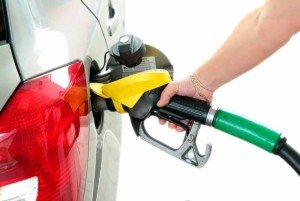Tips to save fuel and money
Across the country petrol prices are cover higher and higher resulting in motoring costs being at an all-time high. We have some fuel saving tips to make your tank go that much further.
1. Regular check-ups: Service your car regularly using a reputable and recognized local car service centre. Engines in modern cars are a lot more complicated than they used to be and these need to be correctly maintained.
2. Check tyres: At least once a month check your tyre pressure and make sure your tyres are inflated to the correct pressure. Tyres which are slightly under inflated can increase your fuel costs. Cold tyres give a false low pressure reading so check the tyre pressure while they are still warm – take a short drive.
3. Reduce weight: Efficiency is reduced if carrying unnecessary excess weight. Remove roof racks, cycle tracks and storage boxes when not in use as these affect the aerodynamics of your car.
4. Temperature: Warming the car before setting off on a journey burns fuel. However, a warm engine is much more efficient than a cold one. Where possible try and make all your trips in succession so the engine does not get cold in between stops.
5. Forward planning: Spend time planning your trip and try and avoid peak times and the congestion that comes with it. Make sure you know exactly where you are going, if you get lost then you end up wasting fuel.
6. Reduce speed: Reducing your average speed by a few mph can have a noticeable effect on your fuel consumption and more importantly on your wallet! If you drive at 70 mph you burn 9% more fuel than when you drive at 60 mph. If your average motorway speed is 80 mph you are burning 25% more fuel than when driving at 70 mph.
7. Nice and easy: A significant amount of fuel can be saved if drivers try and read the road that lies ahead. For example, try slowing down earlier when approaching traffic lights. This avoids unnecessary acceleration, heavy braking and then quick acceleration when pulling away from the lights. If your car becomes stationary for more than a few minutes then switch off the engine to save fuel. However, the best fuel efficient tip is to drive more ‘gently’, avoiding heavy acceleration and using the gearbox to gain a higher speed more quickly. Always try changing gear before reaching 2,500 rpm if driving a petrol and 2,000 rpm if driving a diesel car.
8. Keep it cool: Most modern cars are fitted with air conditioning. When the air conditioning is on it places considerable demand on the engine, so when not required switch it off. However, if the air conditioning is left off for long periods of time, harmful bacteria can build up in the system; this can result in expensive repairs. This can be avoided, try and use the system for a few minutes every two or three weeks.
However, if you are thinking of changing your car to fit in with your lifestyle, you may be better off purchasing a smaller, more fuel efficient model. The newer the model of car the more fuel efficient it will be (this all depends on the car).
Source: http://www.uccc.co.uk/blog/Fuel-tips-to-save-you-money
